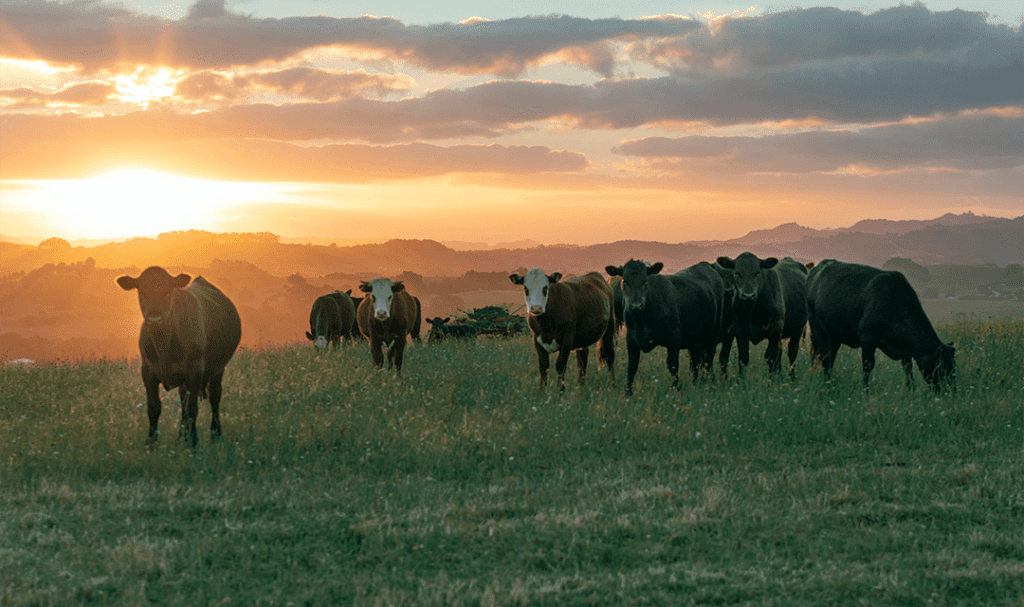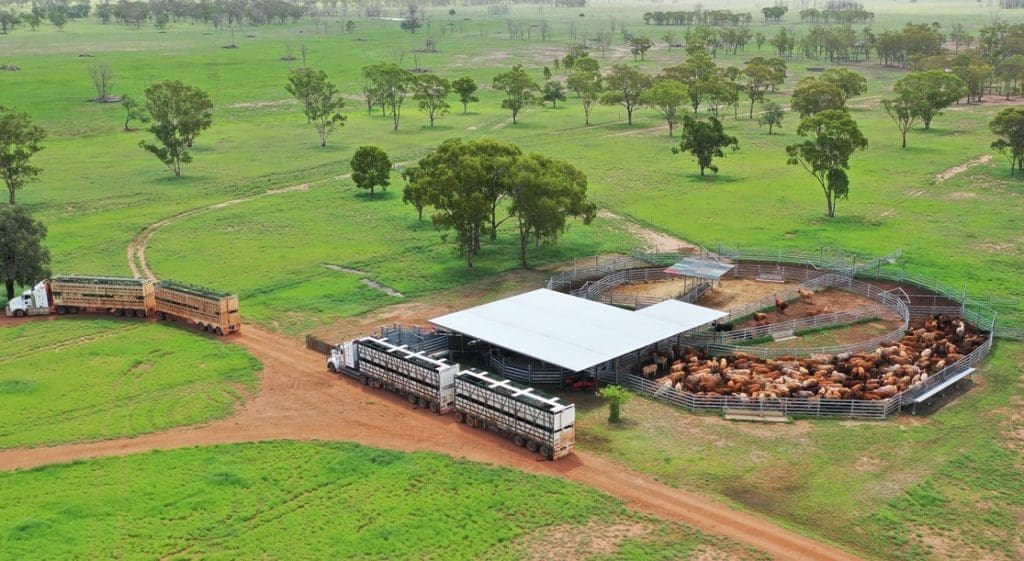
WHEN it comes to purchasing activity, a well known agricultural banker reports steady and confident inquiry for rural assets.
In this week’s property review, Rabobank’s Brad James talks about a range of financial issues that can impact buying decisions.
Despite the deteriorating season in some parts of Australia and softening in commodity prices at the end of last year, Rabobank Southern Queensland regional manager said inquiry from cattle producers wanting to expand or develop existing properties had been consistent.
“The bank didn’t experience any shift in sentiment or slowdown in inquiries from people wanting to increase productivity,” he said.
Generational change
He cited a combination of reasons.
“One is the longer-term view or the generational nature of these acquisitions. There is continued interest by the next generation to move back on-farm after university studies, or qualifying for trades, or whatever skill sets are developed off farm.”
“It is wonderful to see that next generation coming back and that tends to drive some producers’ intentions to expand and to make the farming enterprise sustainable for more than one family,” he said.

Brad James
Secondly, Mr James said primary producers appear to retain a healthy confidence in agriculture.
“There is no doubt seasonal conditions influence confidence but when it comes to investing, expanding or reinvesting in agriculture, primary producers’ long-term intentions have been fairly consistent, even with uncertainty around farm inputs, including interest rates.”
He said there was a strong belief in the long-term viability of agriculture, which Rabobank shared.
As the price of properties rise, so too does the requirement for heavier gearing or more leverage for those who need finance to take on expansion.
“The more leverage, the more caution, and the more analysis needed to make sure the acquisition is not something that will cause a producer financial difficulty. As a result, there is a more in-depth productivity analysis together with the increased cost of the expansion.”
Greater level of analysis
Mr James said most producers today were conducting due diligence to determine what their property can achieve through expansion, rather than expanding to buy more land and then figuring out how to make the productivity work.
“There seems to be an increasing level of analysis from producers about the ability of a property to pay its way. We see far fewer producers simply purchasing a property for grass and hoping the numbers work out.”
He cautioned that no one could expand based on the strength of their balance sheet alone.
“Productivity sustains leverage. Not everyone is borrowing to expand, but those who are, need to ensure the acquisition can cover the cost of that capital.”
Mr James said strong commodity prices had added to inflated land prices on this cycle, however, they don’t always correlate.
“Between 2001 and 2007, commodity prices remained largely stable (for instance, the price of a bullock ranged between $800 and $1000), but the price of cattle country doubled,” he said.
This was not like a commercial enterprise where the value of building is usually underpinned by the revenue it can generate.
“There is a general benchmark on rates of return on commercial properties, but that is not the case when it comes to rural assets. There are so many factors influencing land prices.”
Mr James said while commodity prices was a driver, it was not the sole driver – it could be seasonal conditions or driven by a new commodity or a change in commodity mix.
“Take for example, the sugar industry. Bundaberg has seen a significant shift in commodity mix from sugar cane production to macadamia nuts and other tree crops, and that has generated confidence through diversity and seen an escalation in local land prices.”
Mr James said commodity mix, commodity price and the season all underpinned confidence, and when there was confidence, there was a willingness to expand and invest.
“Australia has a willing banking sector prepared to back viable producers into expansion. There is no shortage of access to leverage capital. There are many different dynamics at play within the various ag sectors, but it is generally underpinned by confidence.”

Leveraged expansion
Despite healthy balance sheets, he said generally many producers fund expansion through leverage.
“Producers experiencing default on loans are low, and fortunately foreclosures are rare,” he said.
“Strong due diligence conducted by banks, under their own standards and those of a regulatory nature, ensure a fair and consistent level of understanding on the part of all parties so a borrower is not over committed.”
Mr James said in the past, a bank that couldn’t see a short term remediation may have taken action quickly before the debt escalated to an unsustainable level.
“Today, most banks take a longer-term view and are more willing to ride out the difficulties hoping the borrower can correct their position and get themselves back to viability.”
“Commodity prices can turn around, and bankers have been encouraged to look through the lens of the client, following the Banking Royal Commission.”
Approval times
Many agents have expressed frustration to beef Central about the lengthy approval times on property borrowings, saying they are disrupting marketing campaigns (which typically run over a six week period) because clients are unable to meet the deadlines.
Mr James admitted the banking industry was generally experiencing slower approval turnaround times.
“This is due to heightened levels of due diligence associated with regulatory requirements and increased level of analysis on any given finance request,” he said.
It was important to manage the expectations of clients, and all stakeholders, involved in a transaction.
“The required time-frames must be clearly articulated, and banks must be given sufficient time to fully assess a producer’s ability to meet the proposed finance commitments.”
Mr James said high on the agenda was analysing and proving cash flows.
“Across the board, the delivery of approvals or ‘speed to market’ is slower but as a consequence, there are less producers experiencing financial difficulties due to debt load.”
He said solicitors and accountants are showing a greater appreciation of the timeframe it now takes to deliver an approval and agents are gradually coming on board.
“Any contract that includes a finance clause needs to account for this as today there is more involved in granting and approving loans than there has ever been.”
Mr James said finance clauses for sizable loans for major property acquisitions (as opposed to an increase for working capital) had increased from seven days and 14 days plus.
“Most solicitors recognise this and are notifying clients that approvals can take up to 30 days in rare circumstances,” he said.
Despite automation and digitalisation of most processes, agriculture was unique because it dealt with many vagaries and variables, such as seasons and commodity prices that need to be assessed and tested against benchmarks.
“Banks are required to analyse and test cash flows to ensure borrowers can sustain the position they are going into.”
Be aware of financial inputs
There are many different factors influencing producers who want to expand or consolidate, and Mr James’ advice is to be aware of the key drivers – in other words, the financial inputs.
“Despite their expertise, there are very few things producers can control. They can’t control the season or commodity prices and that is where the challenge lies – handling big licks of gearing because there are so many vagaries to deal with.”
He advised producers to be across the financial detail on any given number of scenarios.
“Banks see that, with the next generation coming home. They are at the table now more than ever and that is a great scenario because everyone is engaged in the conversation.”
“It is just so important that producers look at the scenarios in a range of conditions in the light of rising inputs and the many vagaries that need to be navigated daily.”
